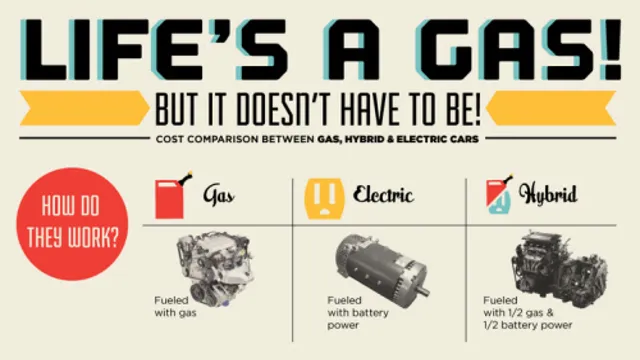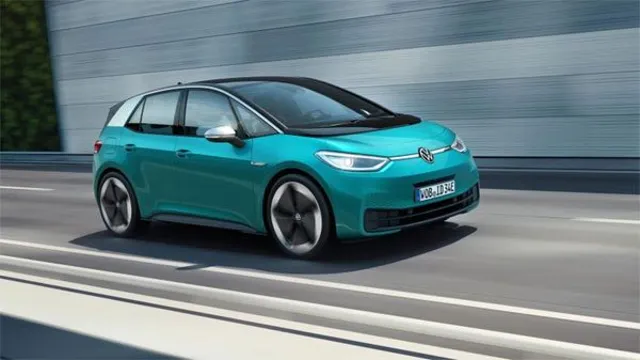Plug-In Your Savings: A Comprehensive Cost Benefit Analysis of Electric Cars
Electric cars are rapidly gaining popularity all around the globe. With rising concerns about climate change and air pollution, more and more people are converting to electric vehicles. The rise of electric cars has been fueled by the increasing availability of charging stations, advancements in battery technology, and government subsidies.
These factors have made electric cars a viable and practical option for everyday use. Not only are electric cars good for the environment, but they are also more cost-effective in the long run. They require less maintenance and have lower fuel costs compared to gasoline-powered cars.
With major automobile manufacturers such as Tesla, BMW, and Nissan producing electric cars, consumers have a lot of options to choose from. Although electric cars may have been perceived as “futuristic” a few years ago, they are now becoming a common sight on streets and highways. The rise of electric cars is not just a trend but a significant shift in the automotive industry.
As we continue to strive towards a cleaner and more sustainable world, electric cars are undoubtedly a step in the right direction.
Benefits of Electric Cars
A cost benefit analysis for electric cars can reveal significant savings over the long run. Although electric cars currently have a higher upfront cost, they have lower operational costs compared to gas-powered vehicles. Electric cars save money on fuel costs since electricity is cheaper than gasoline.
Additionally, electric cars require less maintenance since they do not have complex engines with many moving parts. This translates to lower repair costs and fewer trips to the mechanic. Furthermore, electric cars have longer lifespans than gasoline cars due to their simpler mechanics.
This means that electric car owners are likely to spend less money on purchasing a new car in the long run. When making the decision to switch to an electric car, it is important to consider all the potential savings from lower operating costs and reduced maintenance expenses.
Reduced Fuel Costs
Electric cars offer a wide range of benefits for consumers, with one of the most significant being reduced fuel costs. Unlike traditional gas-powered vehicles, electric cars rely on a battery for power and do not require gasoline to operate. This not only reduces the impact on the environment but also saves drivers money.
Electric cars have lower operating costs, with some studies suggesting they can save drivers 50% to 70% on fuel costs over the life of a vehicle. Additionally, electric cars are relatively low-maintenance, with fewer moving parts and no need for oil changes or regular engine tune-ups. All in all, the reduced fuel costs of electric cars make them an increasingly popular choice for environmentally conscious consumers looking for ways to save money and reduce their carbon footprint.
Tax Incentives and Rebates
Are you on the fence about buying an electric car? One of the main benefits of making the switch is the potential tax incentives and rebates available. Depending on where you live, there could be federal, state, and even local incentives to help offset the cost of purchasing an electric vehicle. For example, in California, buyers can receive up to $7,500 in federal tax credits, as well as additional rebates depending on their income.
These incentives not only make purchasing an electric car more affordable but also encourage more environmentally friendly transportation practices. Plus, with the rising cost of gas, the long-term savings of driving an electric car can be significant. So, if you’re looking for a way to save money and help the planet, electric cars are a great option to consider.
Lower Maintenance Costs
One of the biggest benefits of owning an electric car is the significantly lower maintenance costs compared to traditional gas-powered vehicles. Because electric cars have fewer moving parts and don’t require oil changes, spark plug replacements, or transmission fluid changes, owners can save a significant amount of money over time. Additionally, regenerative braking systems in electric cars reduce wear and tear on brake pads, which means they need to be replaced less frequently.
This all leads to fewer trips to the mechanic and less money spent on routine maintenance. Plus, electric cars tend to be more reliable overall, so drivers can enjoy peace of mind knowing they won’t have unexpected breakdowns or costly repairs. In short, owning an electric car can save you money in the long run while also providing a more efficient and low-maintenance driving experience.
Environmental Benefits
Electric cars are a great way to reduce carbon emissions and help to protect the environment. Unlike traditional cars which produce harmful greenhouse gases, electric cars run without any harmful emissions. This means that they have a much lower carbon footprint than traditional cars and are a great way to fight climate change.
Additionally, electric cars have a lower environmental impact as they are powered by non-polluting sources of energy such as wind or solar power, making them much more environmentally friendly than traditional cars that rely on fossil fuels. Furthermore, electric cars are also much quieter than traditional cars, which reduces noise pollution, making them ideal for urban environments. Overall, electric cars are an excellent way to promote sustainability and help to protect our planet for future generations.
So, why not consider making the switch to an electric car today?
Cost Analysis of Electric Cars
Cost benefit analysis for electric cars is becoming increasingly popular as individuals and businesses look towards sustainable alternatives. Initially, purchasing an electric vehicle (EV) may seem more expensive than a traditional, combustion engine car. However, when taking into account the lower operating costs and potential savings in fuel, maintenance, and taxes, EVs ultimately offer a cost-efficient alternative.
The batteries in EVs require less maintenance than their combustion engine counterparts, and the cost of electricity is significantly less compared to gasoline. Additionally, with government incentives and tax credits available for EV purchases and installation of charging stations, the upfront cost can also be reduced. When considering the long-term benefits for both personal and environmental well-being, investing in an EV with a cost benefit analysis in mind can reap significant benefits.
Upfront Costs vs. Long-Term Savings
As electric cars continue to gain popularity, many people are curious about the costs associated with owning one. While the upfront costs of an electric car can be higher than a traditional gasoline vehicle, the long-term savings can be significant. For example, electric cars have lower maintenance costs since they don’t have an engine that requires regular oil changes or other complicated parts that can break down.
Additionally, the cost of electricity is typically less expensive than gasoline, meaning that you’ll save money on fuel costs over time. When comparing the total cost of ownership for an electric car versus a gasoline car, electric cars can come out ahead in the long run. While there are some upfront costs to consider, the overall savings can make the investment in an electric car well worth it.
Comparing Electric and Gasoline Cars
When it comes to buying a car, cost is always a major consideration. While electric cars are becoming more popular, the higher price tag can be a deterrent. However, it’s important to consider the long-term costs, as electric cars are typically cheaper to operate and maintain than gasoline cars.
The cost of electricity is much lower than the cost of gasoline, so depending on your driving habits, you can save a significant amount of money on fuel costs. Additionally, electric cars have fewer moving parts, which means there are fewer components that need regular maintenance or replacement. Of course, there are other factors to consider, such as the cost of charging equipment and the availability of charging stations in your area.
But overall, when it comes to cost analysis, electric cars offer a compelling value proposition over time.
Factoring in Tax Incentives and Rebates
Electric cars are becoming increasingly popular as people look for sustainable and environmentally friendly alternatives to traditional gas vehicles. While the initial cost of an electric car may seem steep, it’s important to factor in tax incentives and rebates that can help offset the price. Many states and the federal government offer tax credits to those who purchase electric cars, which can significantly reduce the overall cost.
Additionally, some utility companies offer rebates or discounts on electric car charging equipment. It’s important to research the available incentives in your area to get a better idea of the true cost of owning an electric car. When you consider these incentives and the long-term savings on fuel and maintenance, the upfront cost of an electric car begins to make more sense.
Plus, driving an electric car means you’re doing your part for the environment while enjoying a smooth and quiet ride.
Making the Switch to Electric
If you’re considering making the switch to an electric car, it’s important to weigh the costs and benefits. While the initial cost of an electric vehicle may be higher than a traditional gas-powered car, there are long-term cost savings to consider. One major cost benefit of an electric car is the lower cost of fuel.
Charging an electric car is typically cheaper than filling up a gas tank, and maintenance costs are also lower due to simpler engines and fewer moving parts. In addition, many states and countries offer incentives and tax credits for purchasing an electric vehicle, which can offset the higher initial cost. When conducting a cost benefit analysis for electric cars, it’s important to consider your personal driving habits and needs, as well as the availability of charging stations in your area.
However, for many people, the cost savings and environmental benefits of an electric car make it a smart and sustainable choice.
Considerations Before Purchasing
If you’re considering making the switch to an electric vehicle, there are a few important things to keep in mind. First and foremost, you’ll need to make sure that you have access to charging infrastructure both at home and on the go. Depending on where you live, this may be easier or more difficult to accomplish, but it’s essential for ensuring that you’ll have the range you need to get where you’re going.
Additionally, it’s important to understand the maintenance and upkeep required for an electric vehicle. While they often require less maintenance overall, it’s important to regularly check the battery and ensure that it’s operating at peak efficiency. Finally, don’t forget to factor in the cost of the vehicle itself.
While electric vehicles often have a higher upfront cost, the savings in fuel and maintenance costs can add up over time. By doing your research and carefully considering all of these factors, you’ll be well on your way to making an informed decision about whether an electric vehicle is the right choice for you.
How to Finance an Electric Car
Making the switch to an electric car is an exciting and important decision, not just for the environment but also for your finances. While electric cars may come with a steeper price tag upfront, the savings in the long run can be significant. There are various ways to finance an electric car, such as purchasing it outright, leasing it, or financing it through a loan.
If you have the means to purchase an electric car outright, you can save money throughout the lifetime of the vehicle since you won’t have to pay interest on loans or leasing fees. If you decide to lease an electric car, you may be able to take advantage of tax credits and incentives that can reduce your monthly payments. Finally, if you choose to finance an electric car through a loan, make sure to do your research and shop around for the best interest rates.
Additionally, some utilities and companies offer incentives for electric car owners, such as free charging or discounted rates for charging. Overall, taking the time to explore your options and find the best financing strategy for you can make the switch to an electric car a financially smart decision.
Conclusion: Is it Worth it?
In conclusion, a cost benefit analysis for electric cars can be as simple or complex as you make it. On the one hand, electric cars have the potential for significant cost savings in terms of fuel and maintenance over the long-term. On the other hand, the initial cost of purchasing an electric car can be higher than a traditional gas-powered vehicle.
However, when you weigh the environmental benefits, improved air quality, and the sheer joy of silently cruising down the road, the decision to invest in an electric car becomes a no-brainer. So go ahead, make the move to electric, and give Mother Earth a little kiss from all of us!”
FAQs
What is a cost benefit analysis?
A cost benefit analysis is a method used to evaluate the financial and non-financial costs and benefits of a particular project or decision.
How is a cost benefit analysis helpful in determining the value of electric cars?
Conducting a cost benefit analysis for electric cars helps to determine the financial savings in terms of fuel costs and maintenance over traditional gasoline cars, as well as the potential environmental benefits.
What are some of the key factors to consider when conducting a cost benefit analysis for electric cars?
Some factors to consider include the upfront cost of purchasing an electric car, the cost of charging and maintaining the vehicle, the potential savings in fuel costs over time, and the environmental impact of the car.
What are some of the potential environmental benefits of electric cars?
Electric cars emit less greenhouse gases and pollutants compared to traditional gasoline cars, which can help to reduce air pollution and combat climate change. Additionally, electric cars can help to reduce dependence on fossil fuels and promote the use of renewable energy sources.




